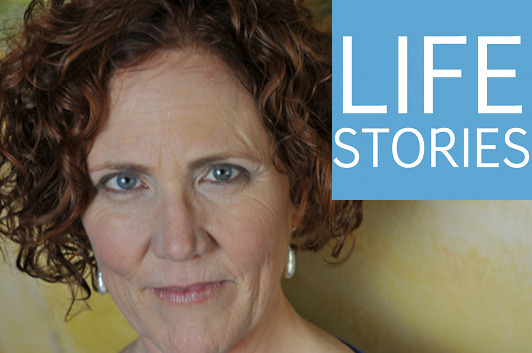Life Stories #29: Mary Johnson
In this episode of Life Stories, the podcast series where I interview memoir writers about their lives and the art of writing memoir, I meet Mary Johnson, who spent nearly two decades in Mother Teresa’s Missionary of Charity, which she writes about in An Unquenchable Thirst. We talk about the urge to help the poor that drew her to a nun’s life, and whether or not the Missionary gave her the best opportunity to do that; we also discuss the warnings young Mary received against forming “particular friendships” with her fellow sisters, and how those instructions sailed right over her head, leaving her open to be seduced by a manipulative nun later in her career. (I ended up referring to her time with the Missionary as a “career” because I couldn’t think of a better word to describe it…) And we talk about why she decided to leave the order, and what she’s been up to in the years since, including her work as the director of the A Room of Her Own Foundation.
I observed that Johnson had left the order shortly after Christopher Hitchens had published his critique of Mother Teresa and her works, The Missionary Position, and that while she made many of the same points about Mother’s limitations as a social reformer, she also brought a more personal perspective to the subject. She agreed:
“He was right that Mother Teresa took money from anybody—from the Duvaliers, from Castro… She took money from Charles Keating and refused to give to back to the people whom he had cheated to get that large, substantial sum that he donated. Christopher Hitchens had all those facts right, but I don’t think he really understood Mother Teresa’s motivations. He called her a hypocrite, and I don’t think she was. I think she really firmly believed in what she was doing, she was trying her best. She did have limited understanding. She was born in 1910 in Albania; there were a lot of things that she really didn’t grasp. But I never found anything in her that was hypocritical.
“And what was interesting to me about Hitchens was that in 2007—so, ten years after Mother Teresa’s death—he read the letters that she had written to her spiritual directors very early on, letters in which she talks about her doubts, about her soul feeling tormented. Hitchens publicly revised his opinion about Mother Teresa, in that he took back the hypocrite word and said, basically, he thought she was a true believer and she was trying her best and she was… manipulated by the Vatican, was the way he worded it, and I think that was very accurate.”
Listen to Life Stories #29: Mary Johnson (MP3 file); or download the file by right-clicking (Mac users, option-click).
30 March 2013 | life stories |


 Our Endless and Proper Work is my new book with Belt Publishing about starting (and sticking to) a productive writing practice.
Our Endless and Proper Work is my new book with Belt Publishing about starting (and sticking to) a productive writing practice. 
